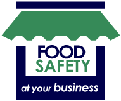HACCP audits: Need, opportunities and challenges
There are many things that have necessitated the need of concrete food safety management systems. Some of the things that have increased food safety requirements are an increase in the incidence of food borne diseases and an increase in food exports and imports. It is essential for companies to follow certain standards and a code of conduct to ensure food safety. One such standard is HACCP or Hazard Analysis Critical Control Point which is aimed at preventing the contamination of food products and hence, preventing further hazardous effects.
HACCP audits are a great way to establish the standing of a company from the point of view of food safety management. It is important for every company operating in the food industry to understand why a HACCP audit may be beneficial for their company and it is also important to understand what keeps some companies from getting a HACCP audit. These audits can encompass all parts of the supply chain in the food industry such as producers, importers, retailers and bulk food storage.
Opportunities that a HACCP audit unleashes
Opportunities that a HACCP audit offers could be many. The foremost one being that the company that gets a HACCP audit gets an external verification from an independent agency about its food safety compliance. It is important to get the food safety management systems verified to be sure of their effectiveness.
A HACCP certificate can be issued to the companies after the successful completion of a HACCP audit. This certificate is an assurance to buyers or sellers of the company products that it meets all of its food safety obligations. In fact there are many companies and organisations that require companies from which they source materials to be HACCP certified, so getting this certificate will open up a whole new world of opportunities for a company.
The HACCP certificate is a feather in the cap of food companies; they enjoy a better reputation and are better trusted in business circles than their peers who don't have it. The companies who get a HACCP certificate stand better chances of getting export deals owing to their strong food safety management system. The biggest advantage is that a company which has a HACCP system overcomes the risk of product rejections and food borne diseases.
Hindrances to the implementation of a HACCP system
Although the system offers many advantages, not all companies are HACCP compliant and certified. The main reason sight is lack of time, but they fail to understand that the time spent on HACCP audits to get certified will result in innumerable benefits. Most companies lack technical know-how and expertise to do this. There are many companies where the leadership is wary of adopting this approach as it may require them to bring about a change in their systems and policies. A lack of food safety documentation is one of the key factors that keep companies from getting a HACCP audit. It is high time that the food companies realise the importance of food safety standards like HACCP. It is also important that they know that there are food safety consultants who can help them with HACCP audits and getting certified.
function checkWholeForm(theForm) { var why = ""; if (theForm.EmailAddress) if (theForm.EmailAddress.value.length > 0) why += checkEmail(theForm.EmailAddress.value); if (theForm.CaptchaV2) why += isEmpty(theForm.CaptchaV2.value, "Enter Word Verification in box below"); if (why != "") { alert(why); return false; } return true; } //

